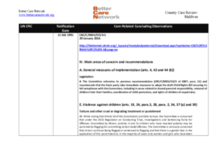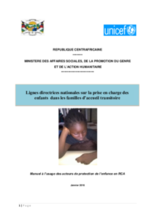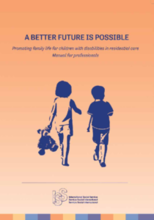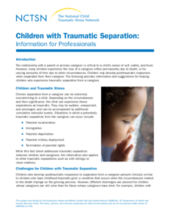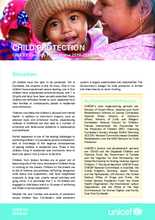Displaying 921 - 930 of 1798
The current study employed interpretative phenomenological analysis to explore 18 in-depth, qualitative interviews from six participants on the meaning and experience of motherhood among teenage mothers in the United States in foster care in the and in the years immediately after ageing out.
This paper builds on a recent evaluation of the piloting of the continental European model of social pedagogy (SP) in English residential care. It does three things: it considers the theoretical social policy literature on policy transfer and its implications; discusses European residential care for children and the discipline of SP; and reflects on these debates and the situation of children's residential care in England.
This country care review includes the care-related Concluding Observations adopted by the Committee on the Rights of the Child.
Le présent document propose la procédure d’identification, de sélection, de formation, de suivi et d’appui aux familles d’accueil temporaire dans la prise en charge des enfants non accompagnés, séparés, enfants associés aux groupes armés, orphelins et autres enfants vulnérables en Centrafrique, aussi bien sur les sites des déplacés que dans les communautés.
This manual provides guidance to professionals who work with children with disabilities in residential care.
This guidance from the National Child Traumatic Stress Network provides information and suggestions for helping children who experience traumatic separation from a caregiver.
În temeiul prevederilor punctului 89 din Strategia pentru protecţia copilului pe anii 2014-2020, aprobată prin Hotărîrea Guvernului nr. 434 din 10 iunie 2014 (Monitorul Oficial al Republicii Moldova, 2014, nr. 160-166, art.
This chapter from the book The United Nations Convention on the Rights of the Child: Taking Stock after 25 Years and Looking Ahead, presents the legal framework and public policies that address violence against children in ten South American countries.
As part of phase one of the development of the Martin James Foundation's Asia Care Network, comprehensive studies of the care system in each country were conducted to highlight the need for developing alternative care systems across South-East Asia. This case study highlights the relevant data from the Philippines.
This brief from UNICEF Cambodia describes UNICEF's plans and programs regarding child protection.

